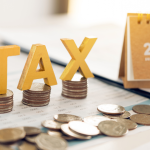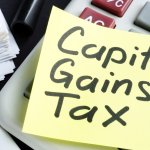Capital allowances effectively take the place of depreciation – an accounting concept which for tax purposes is not an allowable expense.
Capital allowances allow you to claim the cost of assets that you intend to keep for use in your business against your profit. Depending on the type of asset purchased the whole cost of the asset could be deductible. If the asset has a dual purpose – such as a motor vehicle used for both business and private use – the capital allowances need to be restricted.
Earlier this year the Chancellor introduced a new ‘super-deduction’ to the existing capital allowance regime to encourage investment in new (not second hand) business assets.
Effective 1 April 2021 companies are able to claim:
- 130% of the cost of new qualifying moveable plant and machinery items such as office furniture machinery computers and vans – without limit – as opposed to the annual investment allowance of 100% on purchases of up to £1m (or 8% annual writing down allowance); and
- 50% of the cost of qualifying fixed plant and machinery items which have an expected life exceeding 25 years such as integral features of a building as opposed to the 6% annual writing down allowance (e.g. water electric and lighting systems lifts safety equipment heating or air conditioning systems).
The new super-deduction is only available to companies – not sole traders or partnerships.
These ‘extended’ reliefs are only available for purchases up to 31 March 2023 – when Corporation Tax is expected to rise from 19% to 25% for those with taxable profits exceeding £250000.
Companies whose taxable profit is likely to sit between £50000 and £250000 will pay Corporation Tax at a marginal rate of 27%. Disposals of assets on which you have claimed the ‘super-deduction’ after 1 April 2023 may give rise to a larger Corporation Tax liability than expected because these purchases are not pooled with others.
The system is complex! The timing of when an asset is purchased (or sold) is critical to maximise Corporation Tax relief under the capital allowances regime in an accounting period.
Please note –that the annual investment allowance of £1m will reduce to £200k after 31 December 2021; the super-deduction is available until 31 March 2023. These limits will be tapered if your accounting period straddles these dates.
Finally knowing Corporation Tax rates are due to rise it may be preferable to carry forwards losses realised in accounting periods ending between 1 April 2020 and 31 March 2022 rather than carry them back for three years under the new enhanced loss relief rules.
Call Sarah Haird on 01223 810100 – if you need help deciphering tax reliefs available to your company on asset purchases or would like to discuss how best to relieve your losses to aid cashflow.
‘





